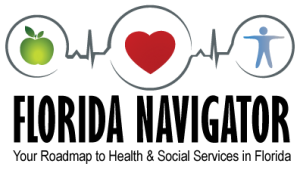By Robert Goodman, MSW
According to the National Alliance for Caregiving, there were 65.7 million caregivers make up 29% of the U.S. adult population providing care to someone who is ill, disabled or aged. The Alzheimer’s Association estimates that there are 43.5 million of adult family caregivers care for someone 50+ years of age and 14.9 million care for someone who has Alzheimer’s disease or other dementia.
The estimated economic value of their unpaid contribution was approximately $450 billion per year in 2009. Family caregivers are the backbone of the nation’s long term care system. Congress only recently recognized caregivers as a profession.
Are you a caregiver?. If you are helping a spouse, parent, child, or other relative or friend perform activities of daily living (eating, walking, bathing, dressing, grooming) then you are a caregiver.
The first rule of caregiving is to take of yourself. If you are not healthy, then the person you are caring for won’t get the care he/she needs. Take breaks (even walking outside for 5 minutes), exercise, talk to a friend, eat healthy, and reduce stress. Caring for yourself makes you a better caregiver.
The Alzheimer’s Association recommends several things that a caregiver needs to do to be an effective caregiver:
- Understand what is going on as soon as possible
- Become an educated caregiver about the illness or disability of your loved one
- Accept changes as they occur
- Make legal and financial plans
- Give yourself credit, not guilt
- Visit your own doctor regularly
It is very important to know about community resources. There are many agencies and organizations in our area that provide support and services for caregivers. There are support groups where members share their concerns, ideas, and frustrations relating to being a caregiver. There are ten indicators of caregiver stress according to the Alzheimer’s Association: denial, anger, social withdrawal, anxiety, depression, exhaustion, sleeplessness, irritability, lack of concentration, health problems. If you are experiencing any of these symptoms on a regular basis it is time to ask for help from a doctor or mental health professional.
If you need help, ASK FOR IT! There is no shame in asking for help. That help might include emotional support (counseling), respite, or hiring another to share the caregiving duties.
Support groups are important to help you learn to be a better caregiver. Several organizations sponsor caregiver support groups. These include: Alzheimer’s Association, American Cancer Society, American Heart Association, National Parkinson’s Foundation, and others.
Resources for Caregivers nationwide and in Palm Beach County:
- Alzheimer’s Association, 1.800.272.3900, www.alz.org
- Family Caregiver Alliance 800) 445-8106 / https://caregiver.org
- Caregiver Action Network
301.942.6430 / http://caregiveraction.org/
- Today’s Caregiver, www.caregiver.com
- Medicare Caregiver Information, https://www.medicare.gov/campaigns/caregiver/caregiver.html
- Well Spouse Association, 1.800.838.0879, www.wellspouse.org
- Faulk Center for Counseling, 561.483.5300
- Trustbridge Hospice, 561.416.4462
- The Volen Center, 561.395.8920
- Jewish Family Services 561-852-3333
- Morse Life Neighbor to Neighbor 561-531-9844
- 211 (information on services in the community)


